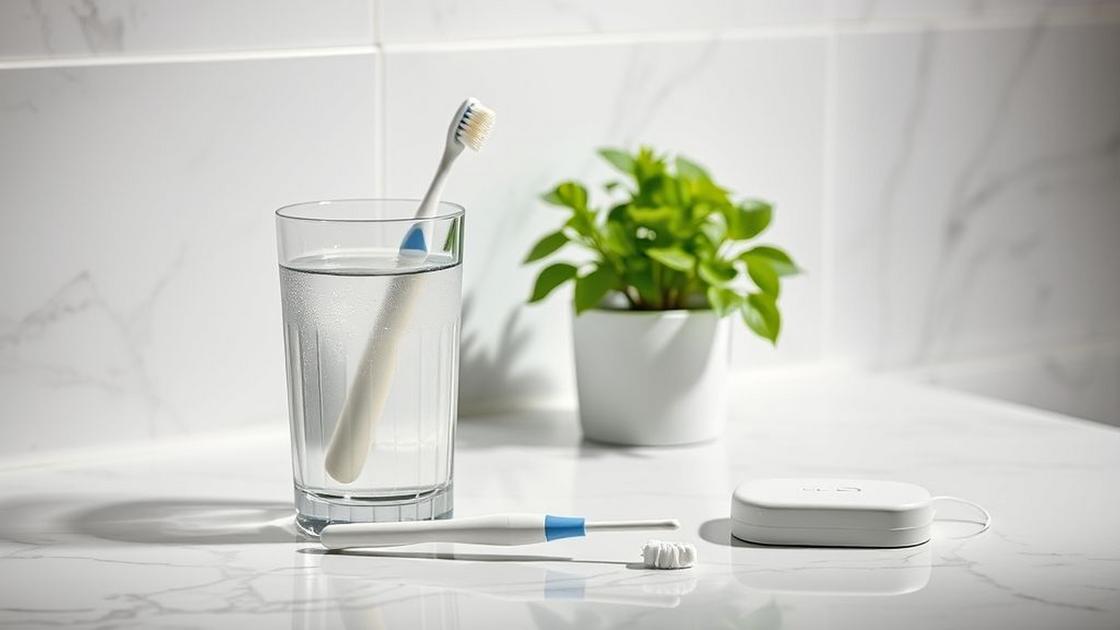Are you looking for the best way to maintain a strong smile? Many women over 30 experience challenges with dental health, whether due to hormonal changes or lifestyle shifts. It’s easy to overlook the important role that vitamins play in our oral wellness. In this article, we will shed light on the top vitamins for healthy teeth and provide insights on how to incorporate them into your daily routine.
Understanding the Connection Between Nutrition and Oral Health
When we think about keeping our teeth healthy, we often focus on brushing and flossing. However, nutrition plays a vital role that many overlook. Your diet affects every aspect of your health, including your dental health. Poor nutrition can lead to cavities, gum disease, and even tooth loss. By consuming the right vitamins, you can strengthen your teeth and maintain that dazzling smile.
Women over 30 might especially find that their body’s nutritional needs change. Factors like hormonal fluctuations can affect how well your body absorbs nutrients. Thus, it’s essential to focus on specific vitamins that promote not only oral health but overall well-being.
Vitamin A: The Unsung Hero of Your Smile
Vitamin A is often overlooked when discussing vitamins for dental health, but it is crucial for maintaining a healthy mouth. It helps produce saliva, which is vital for fighting off bacteria in your mouth. A dry mouth can lead to cavities and gum disease.
Moreover, this vitamin is essential for the maintenance of mucous membranes and soft tissues in the oral cavity. Think about how smooth your inner cheeks feel; that’s vitamin A at work!
Foods rich in vitamin A include:
- Carrots
- Sweet potatoes
- Spinach
- Kale
- Eggs
Vitamin C: Essential for Gum Health
Vitamin C is a superstar when it comes to gum health. It helps promote collagen production, a crucial protein that keeps your gums healthy and resilient. A deficiency can lead to swollen, bleeding gums which can progress to serious gum disease.
For women dealing with hormonal fluctuations, vitamin C can provide additional benefits. Its antioxidant properties help combat inflammation, which is particularly essential during times of hormonal stress.
To boost your vitamin C intake, try adding the following to your diet:
- Citrus fruits (oranges, strawberries)
- Bell peppers
- Broccoli
- Kiwi
- Tomatoes
Vitamin D: Its Role in Calcium Absorption
Vitamin D is best known for its role in bone health, but it’s equally important for your teeth. This vitamin helps your body absorb calcium effectively. Without enough vitamin D, even the best calcium intake may not help you maintain healthy teeth.
Women over 30, especially, may find that their vitamin D levels are low due to reduced sun exposure. This can lead to weakened bones and teeth if not addressed.
To naturally enhance your vitamin D levels, consider these sources:
- Fatty fish (salmon, mackerel)
- Egg yolks
- Fortified foods (milk, orange juice)
- Sunshine (spend time outdoors!)
Vitamin K2: The Key to Stronger Teeth
Vitamin K2 plays a lesser-known role in dental health but is crucial for teeth and bones. It helps in directing calcium to where it’s needed in the body, which aids in strengthening your teeth. Without enough vitamin K2, excess calcium can build up in your arteries instead of your teeth and bones, which is not good.
For those confronting daily life stressors, ensuring you get enough vitamin K2 can be a game-changer. Here’s where you can find this essential vitamin:
- Natto (fermented soybeans)
- Eggs
- Grass-fed dairy products
- Meats (especially liver)
B Vitamins: Boosting Your Oral Defense System
The family of B vitamins, including B1, B2, B3, and B12, is essential for maintaining oral health. These vitamins help reduce inflammation and strengthen the immune system, making it harder for bacteria to invade your gums and teeth.
For women facing the mundane pressures of daily life, incorporating B vitamins may provide that extra boost of energy and resilience in your dental defenses.
Rich sources of B vitamins include:
- Whole grains
- Meats
- Legumes
- Nuts
- Leafy greens
Calcium: The Building Block of Strong Teeth
Calcium is the most essential mineral for your teeth. It forms the hard structure of teeth and keeps them strong. Just as you wouldn’t build a house on a weak foundation, your dental health relies on adequate calcium intake.
For women, especially those who may be experiencing changes due to age or hormonal shifts, maintaining calcium levels is vital for both teeth and bone health.
To keep your calcium levels in check, incorporate these foods into your diet:
- Dairy products (milk, cheese, yogurt)
- Leafy greens (collard greens, kale)
- Fish with soft bones (sardines, salmon)
- Fortified plant-based milks
Magnesium: Supporting Overall Dental Wellness
Magnesium plays an important role in maintaining dental health. It helps with the absorption of calcium and also supports bone mineralization. Furthermore, magnesium helps keep your teeth strong and may even prevent tooth decay.
In times of stress, magnesium can also help manage your overall mood, making it easier to tackle everyday challenges with a smile.
Incorporate magnesium-rich foods such as:
- Nuts and seeds
- Whole grains
- Dark chocolate
- Legumes
- Green leafy vegetables
Iron: Its Importance in Preventing Gum Disease
Iron is essential for maintaining healthy gums. It plays a significant role in hemoglobin production and helps in delivering oxygen to your tissues, including the important tissues in your mouth.
Low iron levels can lead to fatigue and even lead to symptoms like glossitis (inflammation of the tongue), which can make eating uncomfortable. This is crucial for women facing daily stressors and challenges.
Iron-rich foods include:
- Red meat
- Poultry
- Beans
- Spinach
- Fortified cereals
Practical Tips for Incorporating These Vitamins into Your Diet
It’s easier than you think to incorporate these essential vitamins into your life. Here are simple, practical tips:
- Meal Prep: Set aside a weekend day to prepare meals that include many of the vitamins mentioned above. For example, you could create a colorful salad with leafy greens, nuts, and lean protein.
- Snack Wisely: Choose snacks that are rich in vitamins. Instead of chips, opt for a handful of nuts or a piece of fruit.
- Explore New Recipes: Try incorporating foods that are rich in these vitamins into your dinners. Look for recipes that include nutrient-dense ingredients.
- Consider Supplements: If you feel your diet may lack essential vitamins, consult your healthcare provider about supplementation.
- Be Mindful: When consuming processed foods, keep an eye on their nutritional value. Small changes can lead to big improvements in your health.






